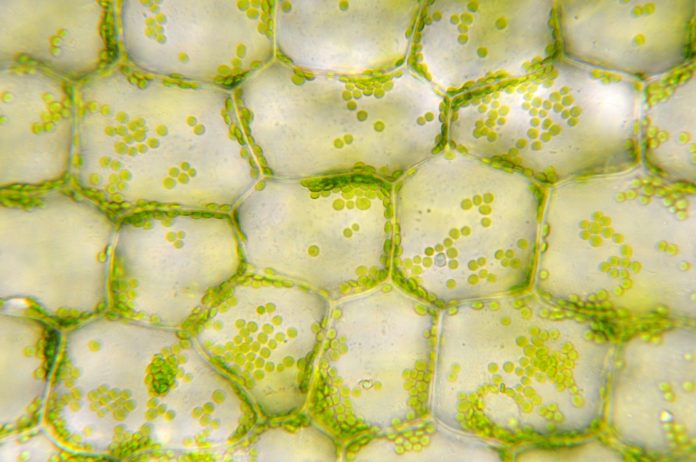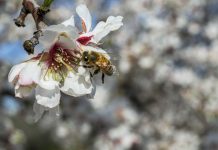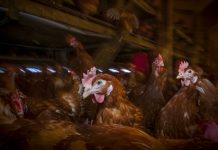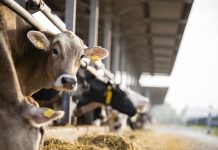Cambridge researchers have secured £7.5 million to build “programmable plants,” a revolutionary initiative poised to transform agriculture. This funding from ARIA aims to fast-track crop development and enhance plant capabilities for a sustainable future
Researchers at the University of Cambridge’s Department of Plant Sciences have been awarded a substantial £7.5 million by the UK’s Advanced Research + Invention Agency (ARIA) as part of its ambitious Synthetic Plants programme.
This significant funding aims to unlock the potential of “programmable plants,” a groundbreaking initiative that could redefine agriculture and food security in the face of escalating climate change.
The funding, split between two pioneering research groups, marks a significant advance in plant biology. The ultimate goal is to equip plants with entirely new capabilities, ranging from enhanced nutrition and resilience to extreme weather events to the growth of novel, useful materials.
Building the future: Artificial plant chromosomes
One of the cornerstone projects, led by Professor Jake Harris, Head of the Chromatin and Memory group, has secured a remarkable £6.5 million. His team is embarking on the audacious task of constructing the world’s first artificial plant chromosome.
“We’re building the tools to make plants programmable, just like software. This isn’t science fiction – it’s the future of agriculture,” stated Professor Harris. He further elaborated on their innovative approach: “Our idea is that instead of modifying an existing chromosome, we design it from the ground up. We’re rethinking what plants can do for us. This synthetic chromosome could one day help grow crops that are more productive, more resilient, and better for the planet.”
While programmable plants and synthetic chromosomes have been successfully engineered in simpler organisms like bacteria and yeast, this project represents the first attempt to create and deploy one entirely from scratch in a plant. The research will initially utilise Physcomitrium patens, a highly engineerable moss, as a development platform before transitioning the technology to potato plants.
This international collaboration includes researchers from the University of Western Australia, biotech company Phytoform Labs, and the Australian Genome Foundry at Macquarie University. Beyond traditional agriculture, this breakthrough also holds promise for growing food and medicines in space and advancing indoor farming techniques.
Unlocking powerful applications: Nitrogen fixation and B12 production
The second ARIA-funded project, led by Professor Alison Smith and Dr Paweł Mordaka in the Plant Metabolism group, has been awarded nearly £1 million as part of a larger £9 million grant. This team aims to leverage synthetic chloroplasts to enable plants to fix nitrogen and produce vitamin B12.
Professor Smith highlighted the profound implications of their work: “Our success would unlock powerful applications in agriculture, like plants capable of nitrogen fixation or producing essential nutrients like vitamin B12, potentially reducing fertiliser dependence and addressing malnutrition. These traits have tremendous potential should they be engineered into plants.” The reliance on nitrogen fertilisers is a major contributor to agricultural pollution, and reducing this need would foster more sustainable food production systems.
This project builds upon their prior success in designing and constructing the entire chloroplast genome for the single-cell alga Chlamydomonas reinhardtii. The Cambridge researchers are collaborating with an international team from the UK, USA, and Germany to transfer this technology to potato plants. Professor Smith emphasised that this research will allow scientists to “surpass what can be accomplished with gene editing and equip plants with new functions, from reducing agricultural water use to protecting crop yields in uncertain conditions.”
A unique opportunity for transformative research
Professor Harris lauded ARIA’s distinctive approach to funding, which he believes has enabled this ambitious endeavour. He noted that ARIA actively engaged with the synthetic biology community to identify “moonshot” ideas that could truly bring about transformative change. This collaborative spirit led to a “totally different way of seeing things,” shifting the focus from simply identifying problems to proactively designing solutions.
Currently, developing a new crop variety in the UK can take up to eight years. However, with the creation of this new programmable plant technology, the development timeline could be drastically reduced to a year or even less, mirroring the accelerated pace seen in drug discovery due to innovations like AlphaFold.
Synthetic biology is already revolutionising healthcare, and its application to tailoring plant traits promises to similarly transform the agricultural landscape, paving the way for a more resilient and sustainable food future.










